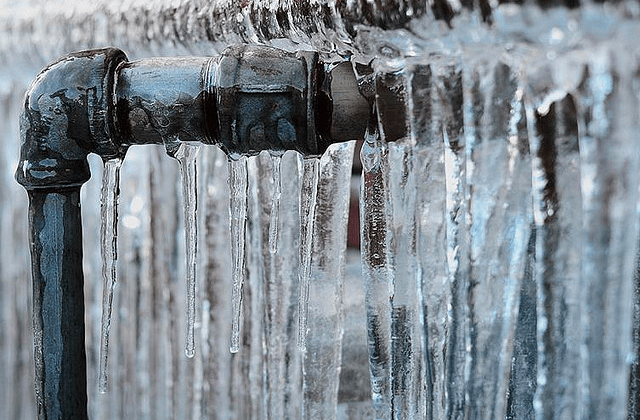Tips for Preventing Frozen Pipes in Winter: Expert Advice
Tips for Preventing Frozen Pipes in Winter: Expert Advice
Blog Article
The article which follows pertaining to Winter Plumbing Precautions: Preventing Frozen Pipes is really motivating. Give it a go and make your own final thoughts.

Cold weather can ruin your plumbing, especially by freezing pipelines. Right here's how to avoid it from occurring and what to do if it does.
Intro
As temperature levels drop, the risk of icy pipes boosts, possibly bring about costly repairs and water damage. Understanding how to prevent frozen pipelines is crucial for home owners in cool climates.
Avoidance Tips
Shielding susceptible pipelines
Cover pipes in insulation sleeves or utilize heat tape to protect them from freezing temperatures. Concentrate on pipes in unheated or external locations of the home.
Heating strategies
Maintain interior spaces effectively warmed, particularly locations with plumbing. Open closet doors to enable warm air to circulate around pipes under sinks.
Just how to recognize frozen pipes
Search for reduced water circulation from faucets, unusual smells or noises from pipes, and visible frost on subjected pipelines.
Long-Term Solutions
Architectural changes
Think about rerouting pipelines away from outside walls or unheated locations. Add added insulation to attics, basements, and crawl spaces.
Updating insulation
Purchase top quality insulation for pipes, attic rooms, and wall surfaces. Correct insulation aids keep consistent temperature levels and lowers the danger of icy pipes.
Securing Outside Pipes
Garden pipes and outside faucets
Disconnect and drain yard tubes prior to winter months. Set up frost-proof faucets or cover outside faucets with shielded caps.
Understanding Icy Pipes
What causes pipelines to ice up?
Pipes ice up when revealed to temperatures listed below 32 ° F (0 ° C) for expanded durations. As water inside the pipes ices up, it expands, putting pressure on the pipe wall surfaces and possibly creating them to break.
Risks and problems
Frozen pipes can result in supply of water interruptions, property damage, and pricey repairs. Ruptured pipelines can flood homes and cause comprehensive structural damages.
Indicators of Frozen Piping
Recognizing icy pipes early can prevent them from bursting.
What to Do If Your Pipes Freeze
Immediate actions to take
If you suspect icy pipelines, keep taps available to eliminate pressure as the ice melts. Use a hairdryer or towels soaked in warm water to thaw pipelines slowly.
Conclusion
Stopping frozen pipes requires aggressive actions and fast actions. By recognizing the reasons, indications, and preventive measures, home owners can shield their plumbing during winter.
Helpful Tips to Prevent Frozen Pipes this Winter
UNDERSTANDING THE BASICS: WHY PIPES FREEZE AND WHY IT’S A PROBLEM
Water freezing inside pipes is common during the winter months, but understanding why pipes freeze, and the potential problems it can cause is crucial in preventing such incidents. This section will delve into the basics of why pipes freeze and the associated problems that may arise.
THE SCIENCE BEHIND FROZEN PIPES
When water reaches freezing temperatures, it undergoes a physical transformation and solidifies into ice. This expansion of water as it freezes is the primary reason pipes can burst. As the water inside the pipe freezes, it expands, creating immense pressure on the walls. If the pressure becomes too great, the pipe can crack or rupture, leading to leaks and water damage.
FACTORS THAT CONTRIBUTE TO PIPE FREEZING
Low Temperatures: Extremely cold weather, especially below freezing, increases the risk of pipes freezing. Uninsulated or Poorly Insulated Pipes: Pipes located in unheated areas, such as basements, crawl spaces, or attics, are more prone to freezing. Insufficient insulation or lack of insulation altogether exacerbates the problem. Exterior Wall Exposure: Pipes running along exterior walls are susceptible to freezing as they encounter colder temperatures outside. Lack of Heating or Temperature Regulation: Inadequate heating or inconsistent temperature control in your home can contribute to frozen pipes. PROBLEMS CAUSED BY FROZEN PIPES
- Pipe Bursting: As mentioned earlier, the expansion of water as it freezes can cause pipes to burst, resulting in significant water damage.
- Water Damage: When pipes burst, it can lead to flooding and water damage to your property, including walls, ceilings, flooring, and personal belongings.
- Structural Damage: Prolonged exposure to water from burst pipes can compromise the structural integrity of your home, leading to costly repairs.
- Mold and Mildew Growth: Excess moisture from water damage can create a favorable environment for mold and mildew growth, posing health risks to occupants.
- Disrupted Water Supply: Frozen pipes can also result in a complete or partial loss of water supply until the issue is resolved.
WHY CERTAIN PIPES ARE MORE PRONE TO FREEZING
- Location: Pipes located in unheated or poorly insulated areas, such as basements, crawl spaces, attics, or exterior walls, are at higher risk of freezing.
- Exterior Pipes: Outdoor pipes, such as those used for irrigation or exposed plumbing, are particularly vulnerable to freezing as they are directly exposed to the elements.
- Supply Lines: Pipes that carry water from the main water supply into your home, including the main water line, are critical to protect as freezing in these lines can affect your entire plumbing system.
- Underground Pipes: Pipes buried underground, such as those connected to sprinkler systems or outdoor faucets, can be susceptible to freezing if not properly insulated.
https://busybusy.com/blog/helpful-tips-to-prevent-frozen-pipes-this-winter/

I'm just very inquisitive about Prevent Frozen Pipes and I hope you enjoyed our blog entry. Do you know someone else who is excited about Prevent Frozen Pipes ? Do not hesitate to promote it. Thanks a lot for your time invested reading it.
About Report this page